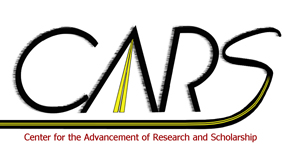Lightning Round: Developing a Comprehensive Theory of Professional Readiness for Athletic Training
Location
Moakley Auditorium
Start Time
9-5-2018 10:50 AM
End Time
9-5-2018 12:00 PM
Description
The study was designed to develop a comprehensive theory of professional readiness in athletic training. The researcher used qualitative methodology collecting data with semi-structured interviews. Interview transcripts were analyzed using a constant-comparative analysis as well as open, axial, and selective coding. Upon analysis, four main themes emerged for professional readiness in athletic training including organization and administration, interpersonal relations, athletic training attributes, and confidence.
Subcategories within organization and administration included administration skills, adaptability, and organization and time management. Subcategories within interpersonal relations included personality characteristics, communication, and professionalism. Subcategories within athletic training attributes included clinical skills and professional practice. Professional practice was comprised of collaborative practice, continuing education, understanding roles, and professional development. Confidence did not contain a subcategory. Implications include the ability of athletic training programs to modify the curriculum to better include all aspects of professional readiness.
Lightning Round: Developing a Comprehensive Theory of Professional Readiness for Athletic Training
Moakley Auditorium
The study was designed to develop a comprehensive theory of professional readiness in athletic training. The researcher used qualitative methodology collecting data with semi-structured interviews. Interview transcripts were analyzed using a constant-comparative analysis as well as open, axial, and selective coding. Upon analysis, four main themes emerged for professional readiness in athletic training including organization and administration, interpersonal relations, athletic training attributes, and confidence.
Subcategories within organization and administration included administration skills, adaptability, and organization and time management. Subcategories within interpersonal relations included personality characteristics, communication, and professionalism. Subcategories within athletic training attributes included clinical skills and professional practice. Professional practice was comprised of collaborative practice, continuing education, understanding roles, and professional development. Confidence did not contain a subcategory. Implications include the ability of athletic training programs to modify the curriculum to better include all aspects of professional readiness.
